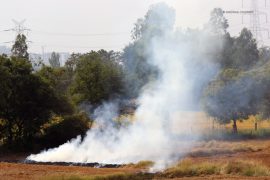Human trafficking normally encompasses what some call the ‘flesh trade’, referring to prostitution. But in India, it can refer to actual flesh.
In March 2017, an investigation by a news website revealed the skin trade between Nepal and India. Nepalese women, ’employed’ by traffickers, sell 20 square inches of skin for Rs. 10,000 ($155). The skin finds its way to the tissue banks, from where they are exported for the plastic surgery business.
Women are sedated when their skin is grafted. Often, they don’t even know what’s happened to them until much later. Nepali women are particularly preferred for their fair skin – passable as Caucasian. For someone in need of a transplant, it’s often a no ‘questions asked’ affair.
Since then, the Nepalese government has promised to look into the matter. But this is just one aspect of illegal human trafficking in India. There’s also bonded labour, where people are compelled to work for their employers by virtue of being in their debt. It can often mean entire families being compelled into work – including the children.
Copyright©Madras Courier, All Rights Reserved. You may share using our article tools. Please don't cut articles from madrascourier.com and redistribute by email, post to the web, mobile phone or social media.Please send in your feed back and comments to [email protected]











